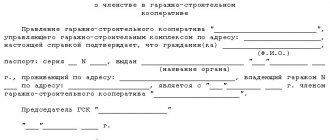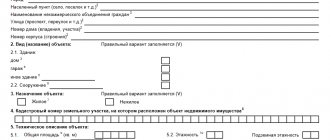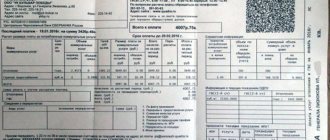Non-payment of debts for housing and communal services by certain categories of the population has always been a problem in Russia. With the worsening crisis associated with the coronavirus and the fall of the ruble, this problem has reached critical proportions.
To support citizens of the Russian Federation, the Government announced a so-called amnesty for housing and communal services debts for the entire 2020. After which rumors spread about the possibility of completely canceling payments on bills or writing off debts, but in reality things are a little different.
When is the debt for utilities paid off, after how long?
- According to Art. 266 of the Tax Code of the Russian Federation, a debt that is unrealistic to collect is recognized as a debt of the payer for which the statute of limitations has expired, as well as a debt for which the impossibility of collection is confirmed by a decree of the bailiff.
- In addition, a debt is considered hopeless if the obligation is terminated due to the impossibility of fulfilling it on the basis of an act of a government agency. That is, the utility service upon the death of the payer (in the absence of heirs), if it is impossible to collect the debt after the end of enforcement proceedings, as well as in the absence of the debtor property on which collection may be directed is obliged to classify the debt as doubtful and write it off.
Is it possible to conclude a settlement agreement with the management company with subsequent restructuring?
Art. 153 of the RF Housing Code obliges all users of utility services to make timely payments. If the payer’s life circumstances have changed (loss of job, health problems), then you should not let the situation with utility payments take its course.
If you are unable to repay the debt, you need to contact the management company with a request to restructure the debt. Typically, the resource provider or management company asks to deposit a certain amount at once, and repay the rest of the debt over the time agreed upon by the parties to the agreement.
Such a scheme cannot be called a debt write-off in full, since in reality the utility debt will have to be paid off, but part of the penalties and fines will be written off.
Receiving subsidies or benefits
The second option to get rid of the burden of utility debts is to apply for a subsidy. If the payer (a member of his family) is entitled to receive benefits, they must also be used.
Of course, if you have debt, it will not be easy to apply for a subsidy or benefit, since regional laws regarding the provision of support to vulnerable segments of the population set a restriction - the absence of debt to public utilities. Paragraph 47 of the resolution of the plenum of the Supreme Court dated June 27, 2020 No. 22 indicates that debt cannot be a basis for refusal to provide subsidies or benefits.
Of course, this method will not write off the existing debt for housing and communal services, but it will make it possible not to increase it, but even to repay it a little when the subsidy arrives.
Procedure
Payment of debt for provided utility services is possible in installments. However, debt restructuring is a rather lengthy procedure.
Remember! It consists of several main stages:
- a homeowner who has fallen behind in payment must submit a written application to the management company or a specific service provider explaining the reason for the debt, the timing of its payment, and the amount of monthly payments;
- If a positive decision is made, a debt restructuring agreement is concluded between the service provider and the debtor. It establishes the agreed upon repayment terms of the debt, the frequency of payments and the minimum amount of the amount required to be paid;
- After signing the contract, the owner of the property is obliged to make payment within the terms and in the amounts stipulated by the contract. In case of violation of the assumed obligations, the service provider or management company will have grounds for early termination of the restructuring agreement unilaterally. Subsequently, a lawsuit will be filed and forced collection of the debt with the possible seizure of the debtor’s property.
Concluding an agreement to restructure debt on utility bills allows you to avoid further accrual of penalties for late payment for services provided.
This rule only applies if all payments are made in accordance with the terms of the concluded agreement.
To receive an installment payment for utilities, one application to the management company will not be enough.
Is it possible to write off debts beyond the statute of limitations?
There is indeed a possibility of writing off overdue debt due to the expiration of the statute of limitations.
The statute of limitations is 3 years, and if a citizen has a debt for 5-6 years, then only part of the debt will be canceled.
To apply the statute of limitations provisions, you need to wait until the Criminal Code begins to collect the debt through the court. This will happen when the amount of debt reaches a critical level for the management company. In a lawsuit, the debtor must ask the court to stop the proceedings due to the expiration of the statute of limitations.
How to write off housing and communal services debts over 3 years without going to court
See above. Without a trial, such debts cannot be written off. Since management companies will fight for their money spent on housing and communal services and go to court.
How to write off rent penalties if the debt is repaid
- Rent debtors may be banned from housing transactions
- Housing and communal services in Russia
- How are penalties calculated for unpaid housing and communal services?
- How to avoid paying rent penalties
- How to write off rent debt
- Housing and communal services consulting
- Mechanism for calculating penalties for housing and communal services
Installment plans should be applied for immediately as soon as the debt begins to arise, or even earlier if the payer knows in advance that he will not be able to make the required payment on time. It is worth noting that since last year, for “willful” defaulters, the amount of penalties has been increased to 1/170 of the refinancing rate. According to this rule, for the first three months the penalty will be accrued at the old rate, that is, 1/300, and starting from the fourth month, at 1/170.
How to check debt
You have to find out the amount of debt from time to time in order to understand how much you will have to pay to your management company. Today you can check your debt in several ways, both in person and online, however, before doing this, you should find out your personal account number:
- Independent visit to the management company servicing a specific apartment building. The method is good for those who do not know how to use the Internet or do not have access to it.
- Personal account on the UK website . Almost every government now has its own website, where it creates personal accounts for residents. In them, they can find out their outstanding payments, as well as use other functionality.
- Government services . To view debts you will need to register on the portal. There you can immediately pay off the debt.
- Contacting the resource supplying organization. Water, gas, electricity are supplied by different companies. If you have a debt for one of the services, you can call the number indicated on the receipt and find out how much you owe, for example, for gas. In case of debt for several housing and communal services, you will have to contact several companies.
- ATMs . Select “utilities” at the ATM and enter the details indicated on your receipt in the fields. After this, the amount owed will be indicated on the screen.
Fine for non-payment of utility bills
If you have a debt, you may be subject to penalties. They cannot be classified as a fine; rather, they are one of the types of penalties.
Penalties begin to accrue for each day of delay, starting from the 31st day following the moment when payment should have been made until it is made. Simply put, the debt grows until the tenant pays everything.
The fine is 1/300 of the refinancing rate of the Central Bank of the Russian Federation.
If you are still unable to pay the debt within 90 days, then the consequence is a change in the rate from 1/300 to 1/130.
How can you avoid paying rent penalties?
In the process of debt collection, along with penalties, the main role is played by the agreement, which is drawn up between the owner of the property and the management company that provides utilities for residential premises.
Legal rights to refuse
The Law on Rent Debtors, which was adopted in 2020, states how penalties should be collected, and in particular states that they should be calculated on the total amount of debt for each day of late payment. It is worth noting the fact that the maximum permissible percentage is also determined, and it is 1/300 of the refinancing rate adopted by the Central Bank.
- application for recalculation - such a document must be submitted to the service organization no later than 30 days after return or before departure. Payment amounts may be reduced for a period of 6 months. If this time is not enough, you will have to repeat the application;
- papers confirming the fact, reason and time of absence (copies or scans of tickets, travel certificate, etc.).
- death of a debtor tenant, as well as liquidation of a legal entity that received utility bills;
- lapse of time;
- declaring the debtor (individual) bankrupt;
- the inability of bailiffs to implement a court decision in practice.
Rent reduction when tenants are away
In case of late payment of housing and communal services receipts or non-payment, the accumulation of the amount of the penalty, called the term “penalty”, begins. However, some categories of citizens are allowed to write off penalties or significantly reduce their size.
- The amount of debt for housing and communal services as of February 10, 2020 is 2300.00 rubles. Of these, 1100 rubles. — for January 2020 and 1200 rub. for December 2020.
- Payment was received on the 19th of the same month.
- Number of days overdue: 9 (11th, 12th, 13th, 14th, 15th, 16th, 17th, 18th and 19th).
- The calculation of penalties will look like this:
- 1200.00 * 0.11 / 300 * 9 = 3.96 rub.
- Second example:
- The amount of debt for housing and communal services as of March 10, 2020 is 8571.28 rubles. Of these, 701.27 rubles. for October 2020, 1650.88 rub. for November 2020, 1971.01 rub. for December 2020, 2096.50 rub. for January 2020 and 2151.62 rubles. for February 2020.
- Payment was received on the 15th of the same month.
We recommend reading: Does Seizure of Property Apply to a Donated Apartment?
Impossibility of collection
Writing off the debt is impossible; the debtor does not have money or property that can be seized and subsequently sold. In this case, the bailiff will issue a ruling to terminate the enforcement proceedings.
“If a person does not have the means to repay a debt, then in enforcement proceedings there is an impossibility of collection. The person simply has nothing to collect,” says the lawyer. In this case, the bailiff makes a decision on the impossibility of collecting the debt, and enforcement proceedings are terminated.
Bankruptcy
From October 1, 2020, debtors have the opportunity to write off housing and communal services debts in the event of bankruptcy. To do this, you must write a bankruptcy petition and have debt on loans or housing and communal services payments in excess of 500 thousand rubles, and also not have a permanent job for more than three years. If the debtor is declared bankrupt by a court decision, he will be released from paying debts, and the creditor will have the right to write off the debt in accordance with the court decision.
“Thus the performance obligations cease. That is, if there is not enough property to fulfill a specific obligation to pay the debt of the management company, then it will be impossible to collect the debt for past periods,” explains Nekrasov.
Organize claims work in the organization
We believe that competent construction of claims work in housing and communal services organizations and constant support of enforcement proceedings would help to avoid most of the above problems. Companies would not have overdue debts, real income from debtors during enforcement proceedings would increase, and the overall percentage of collection of current house payments would increase.
To collect funds from each debtor, follow the instructions:
1. Prepare a set of documents, including:
- full justification of the amount of the stated claims and calculation of penalties;
- an application for a court order or a statement of claim in case of its cancellation;
- an extract from the Unified State Register of Real Estate for the disputed premises;
- other documents (charter, minutes of OSS meetings, etc.).
2. Properly certify all documents and send them in accordance with the rules of jurisdiction and jurisdiction to the court.
3. If there is a large amount of debt, agree with the court on the volume of court orders (statements of claim) that you will file on an ongoing basis.
4. Receive a court decision in your case that has entered into legal force.
5. Receive the writ of execution, prepare the claimant’s application and send it to the appropriate bailiff department to initiate enforcement proceedings.
6. Monitor the process of debt collection during enforcement proceedings, appeal the actions of the bailiff, take an active part in enforcement proceedings, submit petitions, send requests, help search for the property and income of the debtor.
From whom should management companies collect utility debts?
271945
Avoiding debt through bankruptcy
A citizen (or his creditor) can file an application for declaring himself bankrupt in arbitration when his total debt is more than 500 thousand rubles, and his income does not allow him to pay his debts on time and in full (or make current payments) within three months from the moment they must be paid. This is stated in Article 213.3 of the Federal Law “On Insolvency (Bankruptcy)” No. 127 - Federal Law of October 26, 2002.
It is clear that debt for housing and communal services in excess of 500 thousand rubles is extremely rare. Therefore, the law understands this amount as a variety of debts. As a rule, this is debt to banks and microfinance organizations. But since the legislator does not divide it by type, during bankruptcy not only debts to banks, microfinance organizations and other creditors are written off, but also debt for housing and communal services.
And if, after the sale of the owner’s property and the completion of bankruptcy, there still remain some debts to creditors (including housing and communal services), then they are considered repaid and are written off from the balance sheet of the management company (HOA, RSO). The bankruptcy petition is filed with the arbitration court at the place of registration of the citizen. The application form can be downloaded from the arbitration court website or on the Internet. Attached to it are documents confirming the fact of the debt, a list of creditors to whom the applicant owes money, an inventory of the citizen’s property, copies of documents confirming ownership, and so on.
But here it should be clarified that bankruptcy of an individual as a result of debt for housing and communal services is impossible in itself. Or it's so rare that I've never seen it. Debt for utility bills is always “written off” during a citizen’s bankruptcy “in addition” to other debts. Therefore, a normal, ordinary person will never go “bankrupt” solely on utility bills. Important: If you decide to “go bankrupt” or a third-party creditor has filed for bankruptcy against you, then do not forget to indicate the management company, homeowners association or RSO in the list of your creditors. Unless, of course, you also have debt for utilities. And remember that the beginning of bankruptcy proceedings does not exempt you from current payments for housing and communal services.
Penalties for housing and communal services
1. The heirs who accepted the inheritance are jointly and severally liable for the debts of the testator (Article 323). Each heir is liable for the debts of the testator within the limits of the value of the inherited property transferred to him.
Advice from lawyers:
Despite the fact that you sold the apartment, the debt remained with you. Therefore, penalties were accrued legally.
No more than 50% of income can be deducted from the account
monthly But if there were savings in the account, they have the right to keep them all.
Is it possible to legally avoid paying penalties on utility bills? The situations can be very different: someone borrowed money from relatives and cannot pay it back, other people are being pursued by debt collectors for overdue loan obligations, and others simply could not pay for household services on time.
We recommend reading: What benefits do the military receive when a child is disabled?
Taking into account the interests of the population, management organizations and companies that supply the population with the necessary resources, the Government has adopted some documents that thoroughly regulate all the actions that the population must take when paying for housing and communal services. These are the Civil Code, the Housing Code and Federal Law No. 307, as well as the procedure for the provision of utility services. All these documents significantly tighten payment discipline, and this process concerns all parties involved in this.
Introduction
How to write off, cancel penalties Penalties are the prerogative of the creditor and are assigned or canceled at his discretion. Typically, suppliers do not cancel penalties, but taking into account the financial condition of the debtor, they can make such a decision and also provide payment in installments.
The order of repayment of claims for any monetary obligations is carefully spelled out in Article 319 of the Civil Code. In particular, this rule indicates that the amount of the payment made, which is not enough to fulfill the existing monetary obligation in full, in the absence of any other agreement, first of all pays off the creditor’s costs associated with obtaining fulfillment, after which they are paid interest and only then the principal amount of the debt is repaid.
Get out of debt by giving up everything
Write-off of debt for housing and communal services is possible if the bailiff issues a resolution to complete the enforcement proceedings. This is stated in Article 46 of the Federal Law “On Enforcement Proceedings” No. 229 - Federal Law dated October 2, 2007. For example, the court collected debts, the bailiff initiated enforcement proceedings, but was unable to collect anything, since the debtor does not receive a pension, nowhere works, has no property, income, and so on. It is clear that this option for escaping debt is relevant mainly for “homeless people,” alcoholics, drug addicts and other asocial elements.
Punishment for non-payment of bills
The consequences of non-payment of bills are serious; the minimum option is the accrual of penalties. Responsibility for payment and control of the issue lies with the owner of the house or apartment - it is a direct responsibility to pay bills regularly. In case of violations, the government authority issues the first warning; if there is no result, an appeal is made to the court for official proceedings. According to statistics, claims will be satisfied, attracting the owner to compensation for legal costs and full payment of housing and communal services receipts (the amount includes a penalty).
If municipal or state housing is rented, a social rental contract is concluded on a first-come, first-served basis, with further full responsibility on the tenant. His responsibility: to make timely payments for water, gas, heat, electricity. In case of non-compliance with the terms of the contract, they have the right to evict him. Renting private property places full responsibility on the owner. This point is legally stated in the contract.
How to find out your debt
How can you find out if you have a debt on utility bills for an apartment?
First of all, you need to regularly check your personal account and pay attention to the amount in the receipts. Effective methods of quick verification: by personal account, through government portals on the Internet and at your residence address.
By personal account
A personal account is the main way to find out if there is a rent debt. Many online services through which payments are made require the user to log in to their personal account. To clarify whether you have a debt, you must enter the following data in the appropriate fields:
- the address of the property to which the receipt is sent;
- account number, payer code;
- email.
The information on the site will be automatically saved.
By the address
There are many ways to clarify the debt for housing and communal services, knowing the address. The most popular options:
- call the landline phone of the management company or housing office, talk to a specialist. You need to find out the number of the current account or accounting department, tell the accountant the home address at which the debt is being clarified;
- personally visit a government agency. This is the easiest way to obtain information. Be sure to check the opening hours and reception hours of the settlement department in advance. The client is given a debt document, a receipt that needs to be paid. Payment through the cash desk is made without commission or fees. If the receipt is for a decent amount, which is difficult to pay at one time, you can enter into an agreement between the parties on gradual repayment;
- view data via the Internet - online bank, city portal, services, terminal or ATM.
On the Internet through online services
The most convenient options to find out about the debt are through Internet portals, online banks, and payment terminals. If there is no address information, you can check it using personal information - the last name of the consumer who signed the real estate contract. For convenience, large banks offer their clients to complete contracts and pay debts via the Internet. In order for companies to display correct data, it is recommended to correctly indicate the address and city in which the house/apartment is located. For example, Sberbank online offers its clients to open a personal account on the official website, register and select payment payment points for themselves:
- translation method;
- payment for services and purchases;
- home telephone and housing and communal services;
- rent;
- electricity and others.
You can check whether there is a debt after indicating the company that provides the services and indicating your personal account number. The Sberbank template for housing and utility payments displayed on the monitor displays the total amount of debt for all recent months.
Writing off debts after death
Death writes off all housing and communal services debts “hanging” on the homeowner or tenant. Relatives of the deceased must send a copy of the debtor's death certificate to the Criminal Code (or to the RSO, if a direct agreement has been concluded).
If the Criminal Code, not knowing about the death of the debtor, submits an application to the court to collect funds from him, then the court, having received the relevant information, will issue a ruling to terminate the proceedings in connection with the death of the defendant. And the management company will write off the debts.
Can debts for housing and communal services be written off?
Payment of utilities is the responsibility of each property owner who has entered into an agreement with the management company. When selling a real estate property, the debt for the apartment does not pass to the new owner, but remains with the former owner.
The purchase and sale agreement may provide for a clause under which the amount of debt will proportionally reduce the redemption price of the property.
By statute of limitations
At the legislative level, there is a statute of limitations for housing and communal services debts. This rule applies as follows:
- The expiration of the statute of limitations occurs after 3 years of non-payment of housing and communal services debts . That is, after the specified time, the plaintiff loses the right to sue, and the debtor now may not pay at all - and this is already legal;
- if the debtor does not pay the debt on his own, then the resource supplying organization has the right to file a corresponding claim (example);
- collection of debts for housing and communal services can be carried out only for the last three years preceding the start of the trial (all debts after 3 years cannot be claimed);
- if the debtor at the court hearing does not indicate the need to apply the rule (article) on the statute of limitations, then the court decision can be made to write off the debt in full (since the principle of legal proceedings is impartiality, therefore the judge cannot tell the parties to the process how it is more profitable to defend their position).
Due to the death of the debtor
Due to the fact that debts follow the owner who allowed them to accumulate, the occurrence of his death entails the complete termination of all rights and obligations of the subject , including the automatic write-off of debts for utilities.
The situation is different when the debtor is a legal entity. Cancellation of a legal entity's debt to resource supply organizations is permissible only in the event of bankruptcy of the debtor.
But in this case, it is not so easy to write off housing and communal services debts, since each company begins liquidation procedures related to the sale of all balance sheet property and the repayment of debts from the proceeds. If such funds are not enough, then resource supply companies will have to write off the debt for housing and communal services.
Time will write off...
Partially write off housing and communal services debts thanks to an application for the Criminal Code (RSO) to miss the statute of limitations. It is three years.
And if the subject has not paid, say, 5 or 6 years, and the management company is trying to collect debts for all these years, then the owner of the premises (tenant) has the right to declare in court that the plaintiff has missed the statute of limitations.
This can be done in writing or orally during the meeting. As a result, the court will collect debts for a maximum of the last three years and refuse to collect for later periods. Unless, of course, the debtor himself has previously acknowledged this debt.
By the way, many management companies and RSOs have recently filed lawsuits and court orders for the collection of utility debts only for the last three years. That is, they themselves recognize later debts as unrealistic for collection and write them off.
Utility debts, collection procedures and consequences
How to find out? Collection procedure Division of debts Consequences
Not all citizens are able to pay utility bills in full and on time. Many Russians are in a difficult financial situation when there is no money left to pay off this debt. But not everyone knows that a delay in payment for up to 6 months can lead to the accrual of penalties, disconnection from communications, litigation on the claim of the service organization for debt collection, and bailiffs have the right to foreclose on the debtor’s property.
In our article, we will consider how you can find out about existing utility debts, and what consequences of non-payment the debtor may face.
How to find out?
Before you pay off your debt, you need to know its size. Today, debt on utility bills can be found out online by personally contacting the housing office or the city settlement center. To obtain information, you only need to name your personal account, you can take the last paid receipt or the “Single Payment Document”.
Sometimes circumstances may arise that make it possible to write off debts for maintaining housing and providing utilities. They are the basis for recalculating the accumulated debt. Such circumstances include:
bankruptcy or liquidation of the debtor, death of a citizen, violation of the statute of limitations on the part of the plaintiff, impossibility of debt collection by bailiffs due to the insolvency of the defendant. Collection procedure
Debt collection for utility bills can be carried out in a simplified manner. The court considers claims for debt in the amount of up to 100 thousand rubles, which is not repaid within 3 months (Article 232.2 of the Code of Civil Procedure of the Russian Federation). Pre-trial measures against the debtor may include:
disconnection from services or suspension of their provision, sending a notification of debt.
When housing and communal services apply to the court, the order is issued within 5 days from the date of filing the application. The order is issued in absentia. Its appeal is carried out within 10 days from the date of receipt of the copy. In this case, the case should be considered as a general claim proceeding. If the order is canceled, the court will issue a ruling and send it by mail to the parties to the dispute within 3 days.
If you are given a housing and communal services receipt, it must indicate the due date for payment. If previously the debt was accrued from the 26th (the next day from the date specified in the payment), now citizens are given an additional 31 days to prevent debt on utility bills.
The presence of debt means that the management company will try to collect it in any case. In this case, before going to court, the organization sends a written claim to the debtor. If the debt is not repaid voluntarily, the debtor can contact a collection agency, which does not always operate within the framework of Federal Law No. 230-FZ dated July 3, 2016.
If collectors come to you, there is only one way out - going to court. By decision, the debtor will be obliged to pay the debt, but will be protected from the accrual of penalties and interest. In court, you can declare the application of the statute of limitations and significantly reduce the amount of debt. You can also ask for a deferment or installment plan, or even write off the debt altogether.
If the court decision satisfies the claims for debt collection, the case is transferred to the bailiff service, which will initiate enforcement proceedings in accordance with the Federal Law of October 2, 2007 No. 229-FZ “On Enforcement Proceedings.”
Debt section
In some cases, a large debt for utility bills has to be written off due to the fact that the bailiff does not find the debtor either money or property that can be foreclosed on. Housing and communal services workers in this case have the right to go to court again. When you can't write off your debt, you can try to reduce it. Basic methods for reducing utility debt:
installment plan of debt, debt restructuring, application of recourse for the collection of utility bills, division of debts among all owners of the premises, application of the statute of limitations in litigation.
Division of debts voluntarily or through the court is the possibility of distributing the burden of payments among several owners, who will pay in proportion to their share in the common property. This method of reducing your debt burden will not completely relieve you of the need to pay the debt, but it will be much easier to execute the court decision.
Consequences
Responsibility for non-payment of utility debts begins after a month of delay in payment. From the second month of delay, a daily penalty is charged, in accordance with clause 14 of Art. 155 Housing Code of the Russian Federation. Its percentage depends on the number of months of delay:
1/300 of the refinancing rate of the Central Bank of the Russian Federation - from 1 to 3 months, 1/150 of the rate for subsequent months starting from 4 months.
Temporary restriction or disconnection from hot water, intercom services, gas, electricity is a common measure applied until the debt is repaid if the debtor does not pay for more than 3 months. The limitation is applied in the following order:
the debtor is sent a notification against signature or by mail; if the debtor ignored the warning, after 3 days the executor personally notifies the consumer and disconnects him from communications if technically possible.
Utilities that cannot be turned off are heating and cold water. Operation of the disconnected utility system is resumed no later than 2 days after the debt is paid or a debt restructuring agreement is signed.
Prolonged non-payment of housing and communal services debts may result in legal proceedings. Decisions are made in absentia within a 5-day period by court order. First, the debtor is sent a notice of debt and is offered to pay the debt voluntarily within 30 days or enter into an agreement to repay it. In case of refusal or non-payment, the organization files a claim in court. For the debtor in such a situation, negative consequences arise - in addition to paying the amount of the debt, he bears the burden of paying legal costs and penalties for the entire period of delay.
If bailiffs cannot collect the debt in monetary terms, foreclosure on the debtor's property and even forced eviction from the occupied living space is possible.
If a legal problem arises related to the collection of utility debts, we recommend contacting our lawyers via the feedback form or by calling the indicated telephone numbers. Experienced specialists will tell you how to resolve the debt problem, what actions to take if bailiffs foreclose on your property and other problems.






